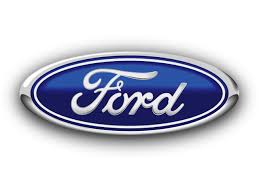Ranger 2WD V6-3.0L (2008)

Muffler: Service and Repair
Muffler and Tailpipe
Removal
CAUTION: Do not use oil or grease-based lubricants on the isolators. These lubricants may cause deterioration of the rubber. This can lead
to separation of the isolator from the exhaust hanger bracket during vehicle operation.
All vehicles
1. With the vehicle in NEUTRAL, position it on a hoist.
Vehicles with 2.3L
2. Remove the exhaust downpipe-to-muffler and tailpipe assembly bolts, flagnuts and gasket.
^
Discard the flagnuts and gasket. Vehicles with 3.0L and 4.0L
3. Remove the RH side of the exhaust Y-pipe-to-muffler and tailpipe assembly bolts, flagnuts and gasket.
^
Discard the flagnuts and gasket. All vehicles
4. Disconnect the 3 rubber isolators and remove the muffler and tailpipe assembly.
Installation
CAUTION: Do not use oil or grease-based lubricants on the isolators. These lubricants may cause deterioration of the rubber. This can lead
to separation of the isolator from the exhaust hanger bracket during vehicle operation.
NOTE: Clean all the mating surface of the muffler and tailpipe assembly.
All vehicles
1. Position the muffler and tailpipe assembly into the vehicle and connect the 3 rubber isolators.
Vehicles with 2.3L
2. Install a new exhaust downpipe-to-muffler and tailpipe assembly gasket.
3. Install the exhaust downpipe-to-muffler and tailpipe assembly bolts and new flagnuts.
^
Tighten to 40 Nm (30 lb-ft).
Vehicles with 3.0L and 4.0L
4. Install a new RH side of the exhaust Y-pipe-to-muffler and tailpipe assembly gasket.
5. Install the RH side of the exhaust Y-pipe-to-muffler and tailpipe assembly bolts and new flagnuts.
^
Tighten to 40 Nm (30 lb-ft).
All vehicles
6. Check to see if the exhaust system isolators are at zero load. If the exhaust system isolators are not at zero load, carry out the exhaust system
alignment procedure.
